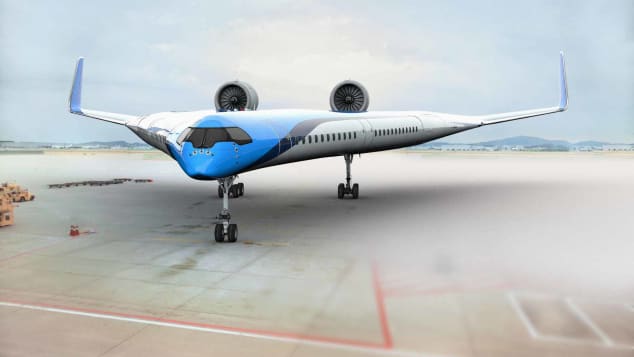KLM Royal Dutch Airlines has signed an agreement with the Netherlands' Delft University of Technology to fund the design of a new jet in the style of "Flying wing" aircraft, which date to before the Second World War.
The aircraft will be launched into the commercial realm as a way to improve fuel economy in its fleet.
The concept, known as the "Flying-V" will have the same wingspan as an Airbus A350, though it will not be as long.
It's been stated that since the aircraft will have the same wingspan as other commercial jets, it will be able to use current airport runways. Passengers and cargo will all fly in the wings of the aircraft.
KLM says the aircraft will hold the same number of passengers (314 in standard configuration) as well as the same amount of cargo as the A350 while its lower aerodynamic resistance will use 20% less fuel than the Airbus widebody.
“We are incredibly pleased to be able to cooperate with our trusted partner KLM on our combined mission to make aviation more sustainable," said Henri Werij, dean of the Faculty of Aerospace Engineering at TU Delft. "Radically new and highly energy-efficient aircraft designs such as the Flying-V are important in this respect, as are new forms of propulsion. Our ultimate aim is one of emission free flight. Our cooperation with KLM offers a tremendous opportunity to bring about real change.”
"In recent years, KLM has developed as a pioneer in sustainability within the airline industry," said KLM President and CEO Pieter Elbers. "The development of aviation has given the world a great deal, offering us an opportunity to connect people. This privilege is paired with a huge responsibility for our planet. KLM takes this very seriously and has therefore been investing in sustainability at different levels for many years, enabling it to develop a broad spectrum of sustainability initiatives. We are proud of our progressive cooperative relationship with TU Delft, which ties in well with KLM’s strategy and serves as an important milestone for us on the road to scaling-up sustainable aviation.”

